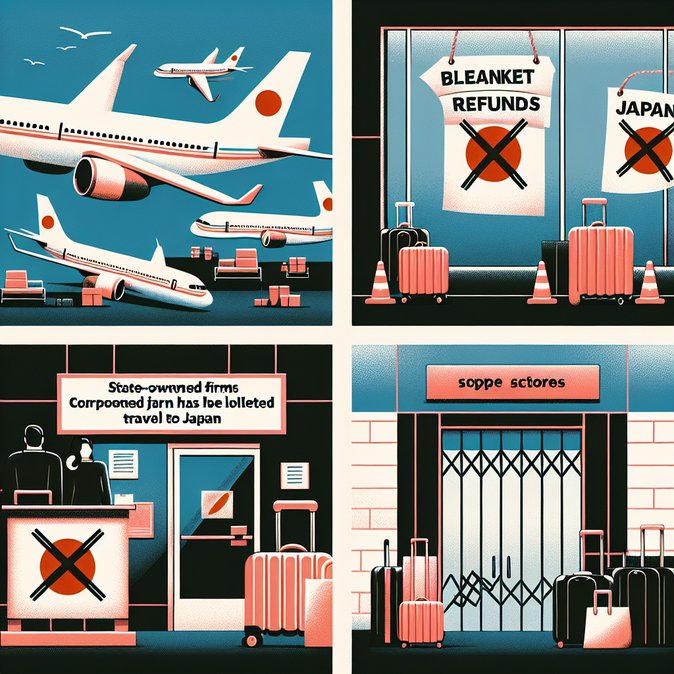
Chinese outbound tourism to Japan hit an abrupt wall on 18 November after Beijing’s foreign ministry warned citizens to “postpone non-essential travel” amid a diplomatic row triggered by Japanese Prime Minister Sanae Takaichi’s Taiwan security remarks. Travel-data analyst Li Hanming estimates 491,000 Japan-bound airline tickets were scrapped between 15–17 November—about one-third of all forward bookings.
Major mainland carriers, including Air China and China Eastern, are offering full refunds through 31 December, while some have pre-emptively culled capacity on Shanghai–Tokyo and Beijing–Osaka rotations. The cancellations ripple far beyond tourism: Japanese department-store chains, duty-free operators and airlines rely heavily on Chinese spending, and their share prices fell 3-6 percent on the Tokyo exchange Tuesday morning.
![Half-million China-origin tickets to Japan cancelled after Beijing issues safety advisory]()
The mobility impact extends to business travel. Several Chinese state-owned enterprises have instructed staff to cancel trips or seek high-level approval, according to internal notices seen by the Financial Times. Organisers of December’s Beijing-Tokyo Forum—a flagship Track II dialogue—have postponed the event indefinitely.
Japan, for its part, cautioned its nationals in China to avoid large gatherings and increased police liaison with Japanese chambers of commerce in Shanghai and Guangzhou. Although diplomats from both sides are in talks, industry watchers say travel flows could stay depressed into the Spring Festival season unless political rhetoric cools.
Corporate travel managers should review duty-of-care protocols for employees either side of the East China Sea and re-assess budgets as fare-volatility and cancellation rates spike.
Major mainland carriers, including Air China and China Eastern, are offering full refunds through 31 December, while some have pre-emptively culled capacity on Shanghai–Tokyo and Beijing–Osaka rotations. The cancellations ripple far beyond tourism: Japanese department-store chains, duty-free operators and airlines rely heavily on Chinese spending, and their share prices fell 3-6 percent on the Tokyo exchange Tuesday morning.

The mobility impact extends to business travel. Several Chinese state-owned enterprises have instructed staff to cancel trips or seek high-level approval, according to internal notices seen by the Financial Times. Organisers of December’s Beijing-Tokyo Forum—a flagship Track II dialogue—have postponed the event indefinitely.
Japan, for its part, cautioned its nationals in China to avoid large gatherings and increased police liaison with Japanese chambers of commerce in Shanghai and Guangzhou. Although diplomats from both sides are in talks, industry watchers say travel flows could stay depressed into the Spring Festival season unless political rhetoric cools.
Corporate travel managers should review duty-of-care protocols for employees either side of the East China Sea and re-assess budgets as fare-volatility and cancellation rates spike.








